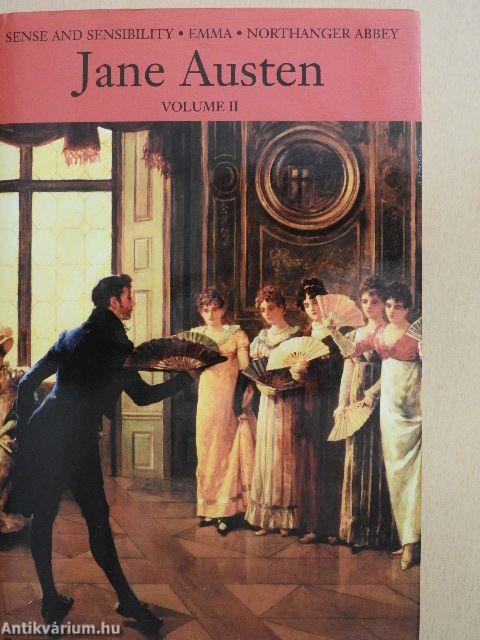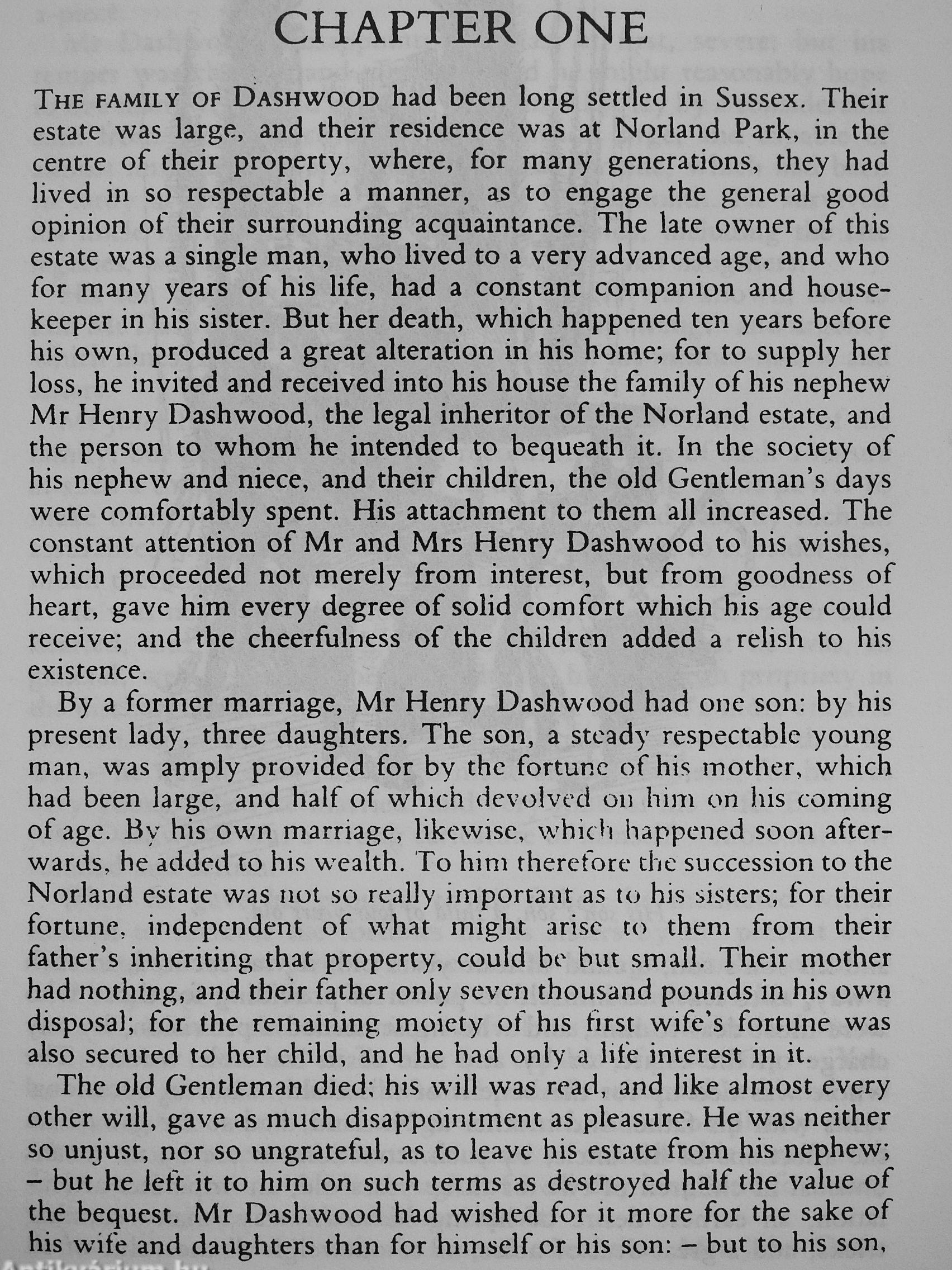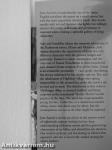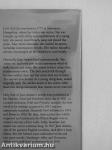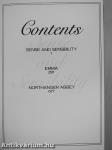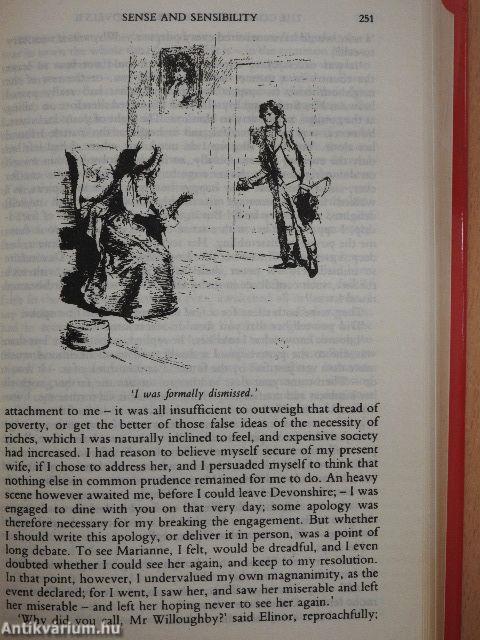1.062.859
kiadvánnyal nyújtjuk Magyarország legnagyobb antikvár könyv-kínálatát

VISSZA
A TETEJÉRE
JAVASLATOKÉszre-
vételek
Sense and Sensibility/Emma/Northanger Abbey
| Kiadó: | Chancellor Press |
|---|---|
| Kiadás helye: | London |
| Kiadás éve: | |
| Kötés típusa: | Ragasztott kemény papírkötés |
| Oldalszám: | 863 oldal |
| Sorozatcím: | The Complete Illustrated Novels of Jane Austen |
| Kötetszám: | 2 |
| Nyelv: | Angol |
| Méret: | 22 cm x 51 cm |
| ISBN: | 1-85152-050-3 |
| Megjegyzés: | Fekete-fehér illusztrációkkal. |
naponta értesítjük a beérkező friss
kiadványokról
naponta értesítjük a beérkező friss
kiadványokról
Előszó
TovábbFülszöveg
Jane Austen's ability to engross and fascinate her readers began nearly 200 years ago and continues today. Her sharp wit, piercing observations about human nature and unrivalled comic genius have meant that Austen's novels have never dropped in popularity and continue to enthral millions of readers today.
This volume, delightfully illustrated with Hugh Thompson's dehcate drawings, contains three of Jane Austen's classic novels.
• Sense and Sensibility
• Emma
• Northanger Abbey
Jane Austen is undoubtedly one of the finest English novelists: she paints on a small canvas, but with the most exquisitely detailed touch. Her novels sparkle with wit and humour; she lightly but teUingly satirises the vanity, selfishness and pretension of mankind while creating a splendid gallery of living characters.
Sense and Sensibility relates the romantic adventures of the Dashwood sisters, EUnor and Marianne. Jane Austen describes the experiences of these two very different characters with the... Tovább
Fülszöveg
Jane Austen's ability to engross and fascinate her readers began nearly 200 years ago and continues today. Her sharp wit, piercing observations about human nature and unrivalled comic genius have meant that Austen's novels have never dropped in popularity and continue to enthral millions of readers today.
This volume, delightfully illustrated with Hugh Thompson's dehcate drawings, contains three of Jane Austen's classic novels.
• Sense and Sensibility
• Emma
• Northanger Abbey
Jane Austen is undoubtedly one of the finest English novelists: she paints on a small canvas, but with the most exquisitely detailed touch. Her novels sparkle with wit and humour; she lightly but teUingly satirises the vanity, selfishness and pretension of mankind while creating a splendid gallery of living characters.
Sense and Sensibility relates the romantic adventures of the Dashwood sisters, EUnor and Marianne. Jane Austen describes the experiences of these two very different characters with the greatest insight and sensitivity. Emma is a comic masterpiece, and the character of Emma Woodhouse is often considered Jane Austen's finest creation. For all her faults, Emma is an irresistible personahty - vain, spoilt, interfering, but always redeemed by her vitality and wit. She, and the inhabitants of Highbury village who spring irrepressibly to life around her, make this novel a joy to read and re-read. The third novel in this volume, Northanger Abbey, is Austen's brilliant and fimny response to the sensational 'Gothic Horror' novels popular at the time. She sends her impressionable young heroine, Catherine, to a mysterious ancient Abbey where dire deeds may be afoot but the consequences are not at all what might be expected.
Jane Austen's novels are all set in the narrow world of eighteenth century society, but her deep understanding of human nature and her penetrating observation of its follies and absurdities are timeless. Her work is as funny and fascinating as when it first appeared, and she is deservedly ranked among the classic authors.
Jane Austen was born in 1775 at Steventon, Hampshire, where her father was rector. She was brought up with all the accomplishments of a young lady: she sewed, read French, sang and played the piano. Also, more unusually, she studied literature, including contemporary novels. Her father, himself a scholar, encouraged all his children to read widely.
Outwardly Jane Austen lived conventionally. She 'came out' and took part in the customary whirl of balls, dances and visits. She seems to have come close to matrimony twice. The first match fell through because neither Jane nor her suitor had any fortune. The second attachment, to a young clergyman, ended tragically with the sudden death of her suitor. After these two disappointments Jane Austen never married.
Only four of Jane Austen's novels were published in her lifetime. Sense and Sensibility came out in 1811, to a muted welcome; Pride and Prejudice (actually the first novel to be written) appeared in 1813 and was rapturously received. Mansfield Park followed in 1814 and Emma in 1816. By then, their author was widely respected and acclaimed; the Prince Regent was an avowed admirer of her work. Sadly, however, her career was not to continue long. In 1817 Jane Austen, one of the greatest English novelists, died after a long illness. She left behind some unfinished works and two more novels, Northanger Abbey and Persuasion, which were published posthumously in 1818. Vissza
Témakörök
- Idegennyelv > Idegennyelvű könyvek > Angol > Szépirodalom > Regény, novella, elbeszélés
- Szépirodalom > Regény, novella, elbeszélés > Az író származása szerint > Európa > Nagy-Britannia
- Szépirodalom > Regény, novella, elbeszélés > Tartalom szerint > Romantikus regények
- Szépirodalom > Regény, novella, elbeszélés > Tartalom szerint > Filmregények
Jane Austen
Jane Austen műveinek az Antikvarium.hu-n kapható vagy előjegyezhető listáját itt tekintheti meg: Jane Austen könyvek, művekMegvásárolható példányok
Nincs megvásárolható példány
A könyv összes megrendelhető példánya elfogyott. Ha kívánja, előjegyezheti a könyvet, és amint a könyv egy újabb példánya elérhető lesz, értesítjük.



